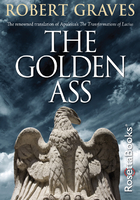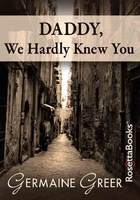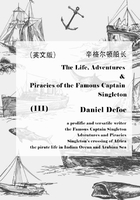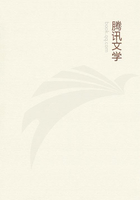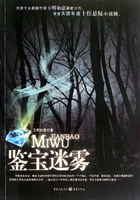Mosca had never seen a pistol before, but she had jealously bartered for Hangman's Histories and Desperate Tales, and had seen woodcuts of highwaymen and murderers. She was a little surprised at how small their pistols were. They had always been drawn large in the pictures to make it clear what they were.
How strange it was to look down the barrel of a pistol! It was not exactly fear, more a soft shock, like being hit in the stomach with a snowball. She seemed to be able to think quite clearly, but at the same time her thoughts seemed to move so slowly that she could watch them trundle past with a feeling of disinterest.
Most of the men were young, she noticed with a frosted calm. One of them kept swallowing, as if he were nervous, and adjusting his grip on the pistol. His head kept twitching, as if he were trying to avoid peering over his shoulder, and a moment later she heard what the robber had already heard—the sound of horses' hooves. None of the armed men seemed alarmed by the noise. They seemed to expect it.
A raindrop fell unexpectedly into her eye, and she instinctively reached up to brush it away before she had time to consider how the robbers might react to such a sudden gesture. She froze, her fingers still on her cheek, pins and needles running through her chest in preparation for a hail of bullets. The robbers did not seem to consider the twelve-year-old girl a mortal threat, however. Half of their attention was trained on the coach's attendants and half on the man whose head and shoulders now became visible above the bracken, beyond the road's bend.
A few moments more, and a sturdy-looking gray turned the corner, dappled like slush. To judge by its panting, it had come some way.
The rider of the gray was neither tall nor of Fine Athletic Build. Mosca looked in vain for any sign that he was carrying a flageolet or wearing a claret-colored cape. But no, he was not even wearing a periwig.
A round-brimmed hat was pulled low on his brow, keeping the wind from his ears. Beneath this, a faint attempt had been made to tie back his ragged hair into a pigtail, but many strands had mutinied. A rough cloak of hessian was flung around him, over his greatcoat.
His face was a fearful sight. It was a good few moments before Mosca understood the meaning behind his reddened eyes, his drawn-back upper lip, and the occasional puckering of his face, and she realized that the highwayman was suffering from a streaming cold.
"Black Captain Blythe," Clent muttered wearily under his breath.
"Take those men off the coach," Blythe ordered his men, "and turn out their coats."
He did not sweep off his hat in greeting.
"Get the passengers out of the coach where we can see them."
He did not pass elegant comment on their predicament.
"Take their purses. And their boots. And their wigs."
His eye did not twinkle. Mosca started to wonder if he were a real highwayman at all.
As the coach driver and footmen clambered down to be searched, Blythe's eye passed questingly over his other prisoners. The quivering trap seller received a glance of contempt, and Blythe's gaze slid off Mosca, to rest on Clent.
"You. Open the carriage door and hand the passengers out."
Hesitantly, Clent laid his hand upon the carriage door.
"My lady," he murmured softly through the window, "I fear your presence is required."
There was a pause. The moonlike face bloomed into view behind the curtain.
"Do they mean to search us?" There was no hint of outrage in the woman's tone. It was simply a question.
"I ... think so. The captain has many men to pay, and seems too desperate to be nice."
"Unacceptable." The voice was soft, almost childish, but chill with resolution.
"Unavoidable."
"Anything is avoidable. I have a pocket watch crafted in the shape of a pistol. If I give it to you along with my purse, you might take my money to the brigands' leader, and then hold the watch against his head until my men are given back their pistols. You would be well rewarded."
Clent opened his mouth until it would have taken in a potato, then closed it again.
"My lady, when a man takes a bullet, all the gold thread in the world will not sew him whole again."
"I am carrying an object of personal value with which I do not intend to part." Her face was now so close to the curtain that the lace left a fretwork of shadow across her cheeks. "Do you know who I am?"
Clent gave a nod. Mosca saw that he was looking at a signet ring on the lady's hand, and she was astonished to hear his next words, low and hurried.
"My lady ... if I can persuade the man not to have you searched, will you be willing to find employment for myself and my"—he glanced at Mosca and visibly relented—"my secretary? We are poets and wordsmiths of no mean standing."
"Very well." The porcelain face receded from the window. "Let us see how you work your will with words."
"Pass me your purse, then, my lady." A pouch of purple silk slid through the window into Clent's waiting hand.
"Can you do it?" hissed Mosca under her breath.
"No." Clent took a shaky breath. "I need a moment to think." He pouted skyward for an instant, smoothing rain up his forehead and into his hair. After a few moments he gave Mosca a smile of slightly haggard hilarity. "Yes. Now I believe I can do it."
Blythe had been supervising the searching of the footmen, but now he gave Clent an ugly look of impatience. "What are you waiting for?"
"There is no one within but a solitary lady—an invalid. She is taken with a fever, and is hurrying home to prevent it becoming dangerous. She has begged that you spare her the cruel humors of the evening air, and allow her to stay out of the rain. This is her purse"—Clent raised the pouch above his head and advanced carefully—"and she says you are welcome to it, if you allow her the blessing of her health."
"The sooner she steps out and takes her place with the rest," Blythe muttered through chattering teeth, "the sooner she can be on her way."
Mosca advanced by Clent's side, and was paid no more attention than if she had been a hedge sparrow.
"I think you speak not as you mean. I have heard many stories of Captain Blythe, but nothing that would lead me to believe that he would let a defenseless flower of a girl suffer a lingering death amid agues and delirium. Those words were spoken by the bitter rain, by the holes in your boots, and by the bigger hole inside your belly—not by Captain Blythe. The man before me is too tall for such words."
Looking into Blythe's face, Mosca suspected that he had never heard himself called a "captain" before. She thought this might be because Clent had conferred the title himself.
"May I speak quite freely?"
"If you can speak both freely and briefly," was the highwayman's curt response.
"I thank you." Clent advanced closer. "I could not trust myself to hold my tongue while I could see you throwing away such an opportunity. What could you hope to gain by dragging that poor suffering girl out into the rain and cutting the buttons off her gown? Perhaps your men hope to cut off her hair as well and sell it to a wigmaker, and leave her quite shorn and cold?"
"What do I stand to lose?"
"Ah!" Clent raised his forefinger significantly before his nose. "I am very glad that you asked me that. You stand to lose something of great value, something which I am in a position to offer you. But first I must ask you a question. How often have you had your boots cobbled?"
"What?" The young highwayman was obviously now utterly perplexed. His red-rimmed eyes flitted this way and that as if he were glancing between the unanswered first question and the perplexing second.
"You do not need to answer," Clent cut in helpfully. "I can do that for you. The answer is: not as often as the holes merit. I can see a hole the size of a sovereign where your big toe is pushing out its head to test the wind. And why? I can answer that too. When your pockets are merry with coins, do you scurry first to the cobbler, and then to the tailor, and have yourself stitched and made watertight? No! That first night you and your comrades find a tavern, and you drink to every king or queen that has ever been toasted, and then you drink to kings that rule only the lands of your own imaginations, and then you drink until you are kings, and no laws can touch you.
"And the next day you must be poor and prudent again, and cannot afford to cobble your boots. But that night!" Clent spread his arms wide, embracingly. "What a gesture! You are shouting to the world, 'I may be wicked, but I will not be mean; I may be wild, but I will not be small; the mud may creep in at my boots but it will not stain my soul ...'"
After a moment's dramatic pause, Clent let his arms drop.
"I am a writer of ballads—I value gestures. I understand them. I know what I can do with them. Let us suppose, for example, that you allowed this young woman to stay in her carriage, handed her back her money, and wished her and her people godspeed back to Mandelion so that she could find a physician who might save her life—ah, what I could do with that!"
Blythe's eyes asked silently what Clent could do with that.
"I could write a ballad that would make proverbial the chivalry of Clamoring Captain Blythe. When you rode the cold cobbles of a midnight street, you would hear it sung in the taverns you passed, to give you more warmth than that thin coat of yours. When you were hunted across the moors by the constables, hundreds would lie sleepless, hoping that brave Captain Blythe still ran free.
"And when at night you lay on your bed of earth under your dripping roof of bracken, with no company but the wind and your horse champing moss near your head, you would know that in a glittering banquet hall somewhere, some young lady of birth would be thinking of you.
"That is what you stand to lose."
Blythe was as wide-eyed as a sleepwalker. He made several attempts to speak before he managed to get the words out. At last he cleared his throat, and took the purse out of Clent's hand, tested the weight of it, and then returned it to him.
"We are in the business of relieving men of their money, not girls of their health. Let her keep the purse to buy a physician." He looked a question at Clent, as if to ask whether these words would work well in the ballad. Clent nodded kindly to show that they would do very well indeed.
Clent was halfway back to the carriage when Blythe called him back.
"Do you ... do you think it would be good for the ballad if we helped them fix the wheel?"
A starry look of suppressed glee entered Clent's eyes.
"Yes, I think that would help a great deal."


